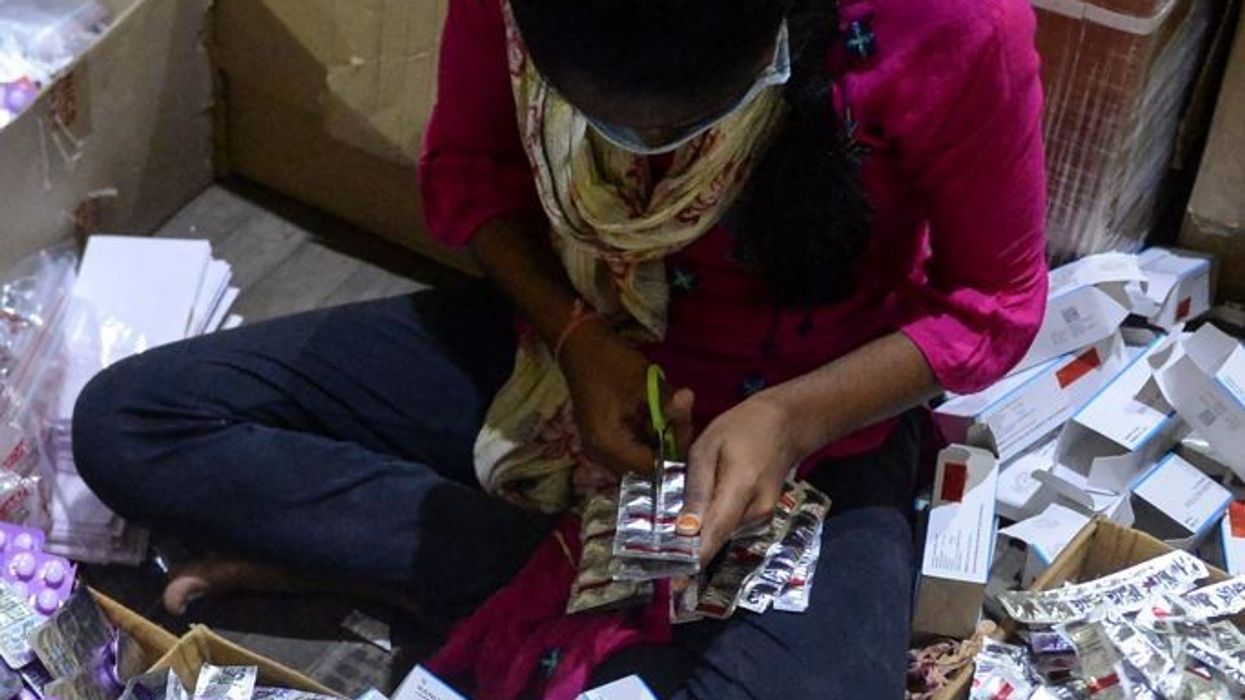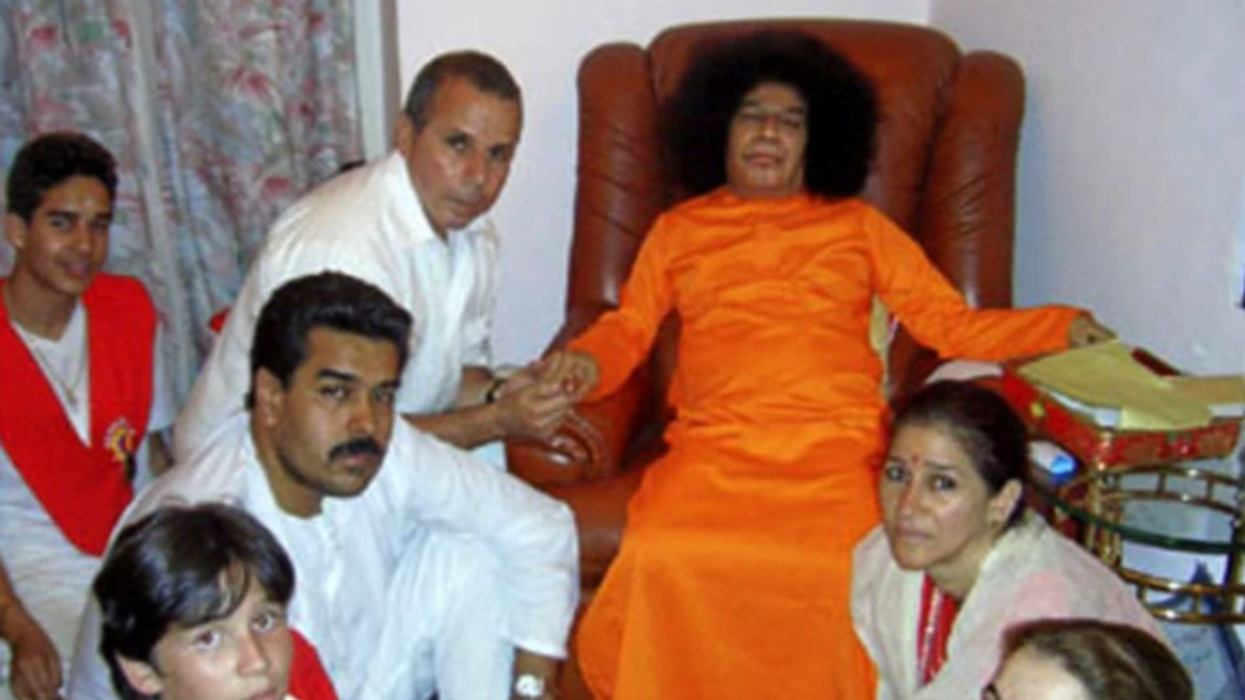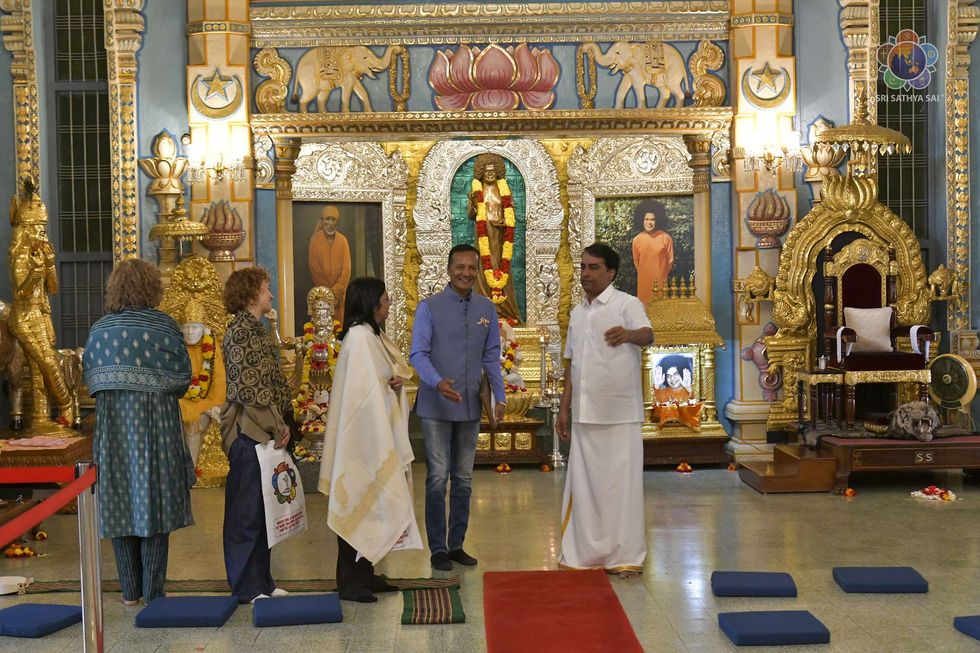INDIA will make it mandatory for drugmakers to audit their raw material suppliers at least once a year, according to a government document, tightening rules after Indiamade cough syrups were linked to 141 children’s deaths worldwide.
The new mandate, along with additional testing rules for cough syrup exports implemented in June, shows that India is seeking to reassure buyers about the safety of its $42 billion (£34.54bn) pharmaceuticals industry, one of the world’s largest.
The World Health Organization (WHO) and other health agencies linked contaminated India-made cough syrups to the deaths of 70 children in Gambia, 65 in Uzbekistan and six in Cameroon in the past year.
India’s federal drug regulator, the Central Drugs Standard Control Organisation (CDSCO), conveyed the decision on mandatory audits for raw material and packaging material suppliers in a meeting with industry representatives on September 15, according to a presentation seen by Reuters.
Drugmakers will have to do an audit of their raw materials and packaging suppliers “at least once in a year”, the presentation said. Currently such audits are done occasionally after events, such as a product recall, it said.
Some Indian drugmakers were buying key ingredients from suppliers who did not have a license to sell pharmaceutical-grade products, Reuters has reported. The drugmakers have denied allegations that their products were responsible for deaths.
Drugmakers will also have to inform their licensing authorities, generally the drug regulator of the state where they are based, of all product recalls, the document showed.
Health experts have previously criticised the lack of data on product recalls after some Indian companies were given drug export licences by their home state, despite previous violations in other states.
The WHO said the deaths of 12 children in India in 2019 after consuming contaminated cough syrup may have been the start of a wave of poisoning by the India-made medicines.
In all the cases, the syrups were found to contain high levels of the toxin diethylene glycol (DEG), and or a related chemical, ethylene glycol.
Through the new regulatory steps for pharma products, India wants to build “trust and confidence on quality” and reduce “product failure”, among other things, the presentation said.
Separately, the trade ministry has been holding workshops across the country for drugmakers to “review the regulatory perspectives on DEG contamination and discuss the current regulations in place to prevent it”, according to a statement from the ministry backed trade body, the Pharmaceuticals Export Promotion Council of India (Pharmexcil).
“Maintaining the quality of pharmaceutical products is crucial to guaranteeing the patient’s safety, failing which could have long-term ramifications for the global public’s confidence on Indian medicines,” Pharmexcil said.
“The Indian pharma units, especially the MSME (small companies) sector are facing new challenges under resource-poor settings to meet global as well as domestic healthcare expectations.” (Reuters)






 Delcy Rodríguez visited Prasanthi Nilayam on October 26, 2024, to pay her obeisances to Sai Baba. (Photo credit: Sri Sathya Sai Media Centre))
Delcy Rodríguez visited Prasanthi Nilayam on October 26, 2024, to pay her obeisances to Sai Baba. (Photo credit: Sri Sathya Sai Media Centre))





